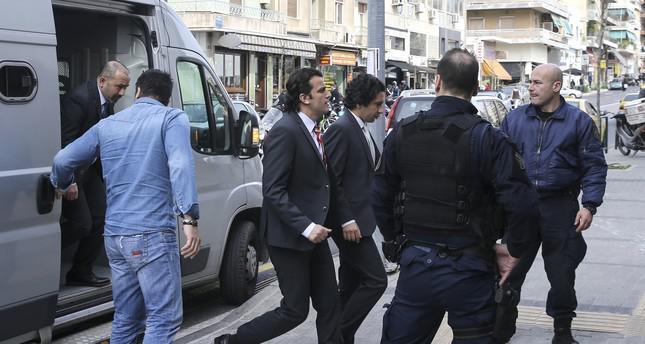
A court in Athens agreed on Jan. 5 to review the Greek government's request to stay a ruling that granted asylum to a former Turkish serviceman who had fled to Greece in a military helicopter after a failed coup in Turkey in July 2016.
The former Turkish serviceman was part of a group of eight coup plotters who took a military helicopter from Turkey to Greece hours after the defeated coup bid on July 15, 2016.
After the closed-door hearing lasting 40 minutes, the Athens appeals court said it would hold a final trial in the case on Feb. 15.
According to a ruling by the third Independent Secondary Asylum Committee, Süleyman Özkaynakçı, the co-pilot of the helicopter that was used to flee Turkey, had been granted asylum last week.
The rest of the officers have so far not been granted asylum and are currently being held by Greek authorities until the committee makes a ruling regarding them.
Turkish Foreign Ministry had criticized the asylum decision, saying that Greece "has once again revealed through this decision that it is a country that protects and embraces plotters."
Turkish Justice Ministry has sent several extradition requests for the former officers.
On Jan. 26, 2017, the Greek Supreme Court decided not to extradite the officers to Turkey. Turkish Foreign Ministry had called the decision “politically motivated.”
The issue was also discussed when Turkish President Recep Tayyip Erdoğan made an official visit to Greece on Dec. 7, 2017.
Fetullahist Terrorist Organization (FETÖ) is widely believed to have orchestrated the defeated coup on July 15, 2016, which left 250 people killed and nearly 2,200 injured.
Ankara also accuses FETÖ of being behind a long-running campaign to overthrow the state through the infiltration of Turkish institutions, particularly the military, police, and judiciary.